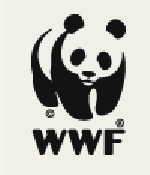Minimum Work Requirements:
Qualifications: A Bachelor’s degree in Natural Resource Management (NRM), Conservation Biology, Environment Science, Forestry, or other related discipline.
Experience: The candidate must have at least 3 years of experience in-country in integrated landscape conservation, community forestry and/or natural resource management. The individual should have sound knowledge in biodiversity conservation, governance in NRM sector, gender and social inclusion, livelihood, conservation policies and current development issues in Nepal. S/he should also have experience in capacity building, planning, communication and monitoring and evaluation. Experience of working with field based conservation and development initiatives, diverse community groups in various altitudinal gradients in the country and government agencies is a must.
Skills and Abilities:
Excellent English and Nepali language skills. Working knowledge of one local language will be an added advantage;
Skilled in Microsoft office package;
Excellent cross-cultural and people skills and ability to interact with senior business, government, and NGO staff
Adaptive Management Skills
Strong communication, coordination and community mobilization skills;
Strong negotiating and analytical skills;
Ability to work in a multidisciplinary and multicultural team.
Download
Field Program Officer – based in Banke
Interested applicants are requested to download the Terms of Reference and Application form and send the same with an application letter to the email address listed below by 17:00 hours on 20th November 2019. Please mention the position you are applying for in the subject line. Emails without an application letter and completed application form will not be entertained. Only shortlisted candidates will be informed.
Email: hr@wwfnepal.org
WWF is an Equal Opportunity Employer. Please join us in our mission to save life on Earth
This Job is expired. The Company is no longer accepting applications for this position.
WWF is the world’s leading independent conservation organization originated from Switzerland in 1961 and currently running in more than 100 countries across 6 continents. The program started from conservation of wildlife to broader concept of building future where humans can live in harmony with nature. WWF has created 1,480 ecoregions that categorize the world into its natural ecosystems. Nepal with Bhutan, northeast India, southeast Tibet and northern Myanmar, falls under the Eastern Himalaya region housing the threatened species Snow Leopards, Bengal Tigers and One-horned Rhinos.
It was in 1967, WWF initiated WWF Nepal with a rhino conservation program in Chitwan. To keep up with the evolving face of conservation and environmental movement, WWF Nepal’s focus progressed from its localized efforts in conservation of single species in 1960s, integrated conservation and development approach in 1990s, to a new horizon of landscape level conservation encompassing national, regional and global scales of complexity in early 2000s.
